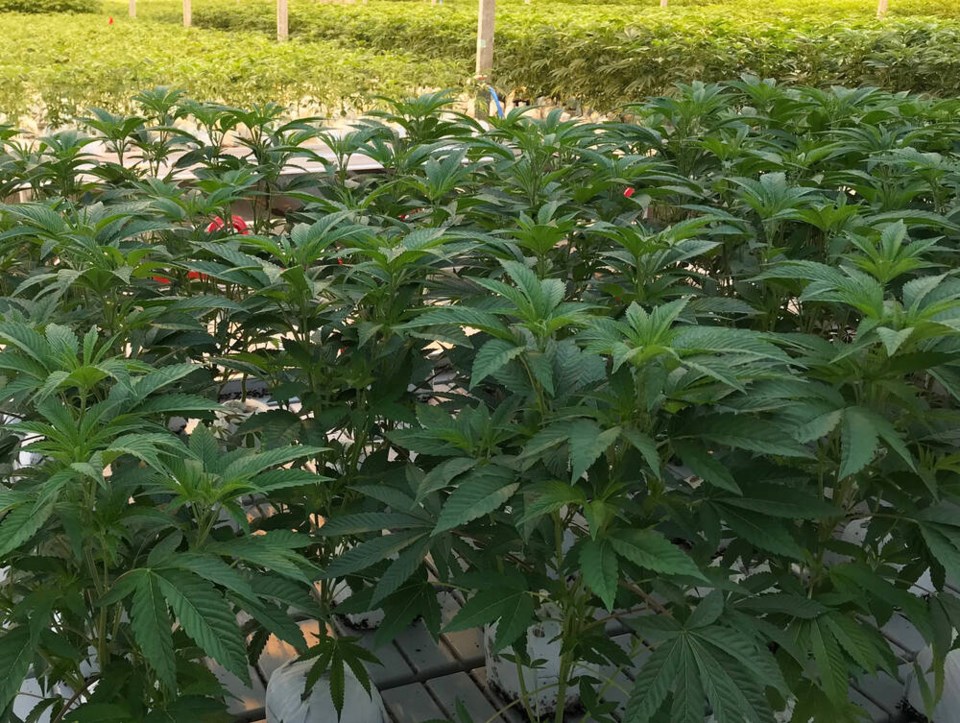Metro Vancouver wants controls over emissions from cannabis growers and processors in Delta and throughout the region, but getting there has been a challenge.
In a recent update to Delta council, the regional district outlined what will be its next step following the board of directors’ discussion on a staff report this summer which claims “volatile organic compound (VOC) emissions from cannabis production are air contaminants that can contribute to the formation of harmful ground-level ozone.”
Metro says the VOCs are also odorous, while hotter, drier summers, due to climate change, are expected to increase concentrations of ground-level ozone in urban areas.
In May 2019 and July 2021, the board directed staff to undertake two phases of engagement on proposed approaches for managing emissions from cannabis production and processing.
According to Metro, “feedback from residents and municipal staff indicated strong support for enhanced management of emissions from cannabis production and processing, while cannabis producers and the agricultural sector expressed significant concerns about the anticipated cost of compliance, emission estimates, and perceived risk of regulatory expansion into other agricultural operations.”
The update notes there have been challenges, however, after regional staff engaged with staff from the ministries of Agriculture and Food, Environment and Climate Change Strategy, as well as Public Safety and the Solicitor General.
“Different ministry mandates and priorities have led to challenges with moving this work forward, despite being aligned on our mutual interests in public health, environmental protection, regional economic prosperity, and public safety,” the report notes.
“Metro Vancouver and the Ministry of Agriculture and Food conducted separate emission estimates that led to different conclusions about projected VOE emission levels and impacts from cannabis production. Closer collaboration with the province on refined emission projections could inform the development of a mutually agreeable, coordinated emission management approach, which is needed to ensure that our future actions advance our mutual interests.”
The board agreed to send a letters to the various ministers, requesting collaboration with Metro Vancouver on developing a concerted approach for managing emissions from the operations.
In 2019, the first phase of consultation on the regional district’s proposed Emission Regulation for Cannabis Production and Processing Operations Discussion Paper was held.
That discussion paper pointed out a number of greenhouses formerly used for vegetable production had been retrofitted for cannabis production, yet were not designed or constructed to collect and treat air contaminants.
“Cannabis production has the potential to cause negative air quality impacts if emissions are not adequately controlled,” that report noted.
The discussion paper also noted the proposed regulation could require that a comprehensive odour and volatile organic compounds emission management plan, certified by an appropriately qualified professional, be submitted for each facility producing or processing cannabis and be approved by Metro Vancouver.
That year, in a response letter to Delta council, Wes Shoemaker, the province’s deputy agriculture minister, explained that there’s not much Delta can do when it comes to odours from greenhouses growing cannabis unless the federal government takes action.
In 2020, Mayor George Harvie wrote a letter to then regional district chair Sav Dhaliwal asking that Metro deny an air discharge approval application by BC Tweed until all emissions, including odorous air contaminants, were comprehensively addressed to ensure there are no negative impacts to the public and environment. BC Tweed was a new large-scale cannabis greenhouse operation that opened in East Ladner but its parent company, Canopy Growth, has since shut it down.
Odours and air contamination from cannabis producers has not been on Delta council’s agenda the past couple of years, nor have been complaints raised by the city.




